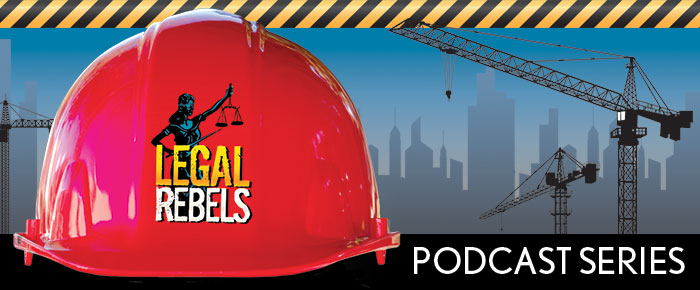
Many of us still get a chill running down our spines when we hear about bank failures and bailouts. After all, it was less than 15 years ago when we went through one of the worst economic disasters in history, and institutions such as Bear Stearns, Lehman Brothers Inc., American International Group Inc. and others became famous for the wrong reasons. The Great Recession took years to recover from, and some of its effects can still be felt to this day.
In November, when OpenAI unleashed the newest, most advanced version of its chatbot, ChatGPT, it immediately captured the imagination. As we’ve covered on this podcast, ChatGPT represents a major leap forward for generative artificial intelligence in that it can converse with and respond to users in a natural, almost humanlike way. So far, it’s been a hit.
One of the biggest and longest-running legal technology shows in the country, the ABA Techshow, is right around the corner. From March 1 to 4, thousands of lawyers, legal professionals and vendors will descend upon Chicago to talk about technology.
For some academics, researching, writing, editing and publishing a scholarly piece of work can take months, if not years, of painstaking effort, diligent commitment and rage-inducing frustration. In December, Andrew Perlman, the dean of the Suffolk University Law School and the inaugural chair of the governing council of the ABA Center for Innovation, authored one in less time than it takes to watch an episode of the Game of Thrones prequel series House of the Dragon.
What are legal operations? According to the Corporate Legal Operations Consortium, legal ops can be loosely defined as a “set of business processes, activities and the professionals who enable legal departments to serve their clients more effectively by applying business and technical practices to the delivery of legal services."
Four years ago, Damien Riehl, like many others, was quite bullish about the future of autonomous vehicles. The potential of the technology was obvious: No more worrying about someone trying to text and drive, no more need for drunken driving checkpoints, and no more danger of falling asleep at the wheel.
The metaverse is all the rage these days. Users can enter a virtual world where they can interact with people from all parts of the physical world, play games, engage in commerce and do a lot of other things. Think Ready Player One, or for older folks, think The Matrix movies, Total Recall or even Disclosure.
The next time you go to a website, find the customer service tab and enter a live chatroom with an assistant tasked with answering your questions and helping you with your issues, the chances are that you’re not actually talking to a human.
Thanks to nearly two-years of COVID-19-related shutdowns and sheltering-in-place orders, working from home has become the new normal. Face-to-face interactions have been replaced by meeting on real-time videoconferencing platforms such as Zoom, FaceTime or Microsoft Teams, while cloud-based collaborative programs have become absolutely vital if any work is to be done.
The U.S. immigration system is complex and confusing, and it causes no shortage of stress for those who have to go through it.
Are you struggling with debt? Do you have collectors breathing down your neck, threatening to repossess your property and filing lawsuits against you in court? For many Americans facing this dilemma, their options are fairly limited.
Facial recognition software is becoming a greater part of our everyday lives. The police use it to investigate crime. Smartphones and computers use it to secure data. Businesses use it to provide more customized, targeted solutions and experiences for its customers. Even bar examiners used it to conduct remote testing during the COVID-19 pandemic.
Like many Americans, Jazz Hampton and two of his friends, Andre Creighton and Mychal Frelix, watched in horror as two fellow Minnesotans, Philando Castile and George Floyd, were killed by police officers following what seemed to be routine traffic stops. If only there had been a way to de-escalate those situations while protecting the rights of the person detained, as well as the law enforcement officer involved. So they came up with one.
As a young personal injury litigator in Georgia, Gino Brogdon Jr. says he was accustomed to using different technology tools to manage his practice. But when Brogdon began working as a mediator, he realized that there were limited tech options to assist him in the alternative dispute resolution realm.
The Innovation for Justice lab launched at the University of Arizona’s James E. Rogers College of Law in 2018 with the goal of designing, building and testing new solutions to addressing the justice gap impacting millions of Americans.
Evisort co-founder Jake Sussman says when the company began developing its contract management and analysis platform, its goal was to use artificial intelligence as a last resort.
AJ Shankar, the founder and CEO of e-discovery platform Everlaw, likes to say his company’s technology is designed to help clients find needles in a haystack.
Michele Pistone, a professor at the Villanova University Charles Widger School of Law, says there are not enough immigration lawyers and attorneys who take on pro bono cases to meet the demand of immigrants seeking legal assistance.
Wilson Sonsini Goodrich & Rosati announced last month that it had teamed up with Workiva Inc. to create an application that automates the S-1 form that companies must file with the U.S. Securities and Exchange Commission when going public.
Priori is an online platform known for using data and technology to connect in-house legal teams with lawyers and law firms who can assist with a wide variety of projects. But Basha Rubin, CEO and co-founder at Priori, says the company noticed that clients were sometimes turning to its online marketplace for help with problems that “might be best solved by a ‘new law’ company or a nontraditional legal provider.”